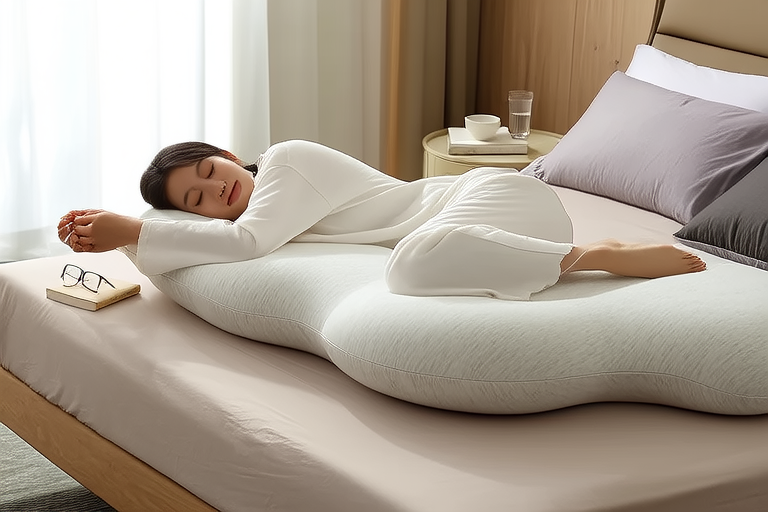Introduction: The Vital Role of Sleep in Our Lives
Sleep is one of the most fundamental pillars of human health, yet it is often overlooked in our fast-paced, productivity-driven world. While we may sacrifice sleep to meet deadlines or binge-watch our favorite shows, the consequences of poor sleep can ripple through every aspect of our lives. From impaired cognitive function and mood swings to weakened immune systems and chronic health conditions, the importance of restorative sleep cannot be overstated. Despite this, many people struggle to achieve consistent, high-quality sleep. This article aims to unlock the secrets to better sleep by exploring practical strategies, emphasizing the role of sleep hygiene, identifying common disruptors, and offering actionable advice to help you embark on your path to optimal sleep health.
Practical Tips for Improving Sleep
Achieving better sleep begins with adopting habits that align with your body’s natural rhythms and needs. Here are some evidence-based tips to help you improve your sleep quality:
1. Establish a Consistent Sleep Schedule
One of the most effective ways to enhance your sleep is to go to bed and wake up at the same time every day, even on weekends. This consistency reinforces your body’s internal clock, known as the circadian rhythm, making it easier to fall asleep and wake up naturally. Irregular sleep patterns can confuse your body, leading to difficulty falling asleep or waking up feeling groggy.
2. Create a Relaxing Bedtime Routine
A calming pre-sleep ritual signals to your brain that it’s time to wind down. Activities such as reading a book, taking a warm bath, practicing deep breathing exercises, or listening to soothing music can help transition your mind and body into a state of relaxation. Avoid stimulating activities like working, scrolling through your phone, or engaging in intense conversations right before bed.
3. Optimize Your Sleep Environment
Your bedroom should be a sanctuary designed for sleep. Ensure your mattress and pillows are comfortable and supportive, and keep your room cool, dark, and quiet. Consider using blackout curtains, earplugs, or a white noise machine if necessary. Minimizing clutter and distractions can also contribute to a more peaceful atmosphere.
4. Limit Exposure to Screens Before Bed
The blue light emitted by smartphones, tablets, and computers can interfere with the production of melatonin, the hormone responsible for regulating sleep. Aim to disconnect from screens at least an hour before bedtime. If screen use is unavoidable, consider using blue light filters or wearing blue light-blocking glasses.
5. Be Mindful of Food and Drink
What you consume in the hours leading up to bedtime can significantly impact your sleep. Avoid heavy meals, caffeine, and alcohol close to bedtime, as they can disrupt your sleep cycle. Instead, opt for a light snack if you’re hungry, such as a banana or a handful of nuts, which contain nutrients that promote relaxation.
The Importance of Sleep Hygiene
Sleep hygiene refers to the habits and practices that are conducive to sleeping well on a regular basis. Just as personal hygiene is essential for physical health, sleep hygiene is crucial for maintaining mental and emotional well-being. Poor sleep hygiene can lead to fragmented sleep, frequent awakenings, and daytime fatigue, while good sleep hygiene sets the stage for restorative rest.
Key Components of Sleep Hygiene
Effective sleep hygiene involves creating an environment and adopting behaviors that support uninterrupted sleep. This includes maintaining a consistent sleep schedule, ensuring your bedroom is optimized for rest, and avoiding stimulants or activities that hinder relaxation. Additionally, incorporating stress-reducing practices such as mindfulness meditation or journaling can help clear your mind before bed.
The Long-Term Benefits
Prioritizing sleep hygiene not only improves the quality of your sleep but also enhances your overall quality of life. Better sleep leads to improved concentration, enhanced memory, stronger immune function, and a more positive mood. Over time, these benefits can reduce the risk of chronic conditions such as obesity, diabetes, and cardiovascular disease.
Common Sleep Disruptors
Even with the best intentions, certain factors can interfere with your ability to achieve restful sleep. Identifying and addressing these disruptors is a critical step toward improving your sleep health.
1. Stress and Anxiety
Stress is one of the most common culprits behind sleep disturbances. Racing thoughts, worries, and unresolved issues can make it difficult to relax and fall asleep. Practicing stress management techniques such as yoga, meditation, or talking to a therapist can help alleviate these challenges.
2. Noise and Light Pollution
External stimuli such as traffic noise, bright streetlights, or household sounds can disrupt your sleep. Investing in soundproofing solutions, using earplugs, or wearing an eye mask can mitigate these disturbances and create a more conducive sleep environment.
3. Technology Overuse
In today’s digital age, over-reliance on technology is a major sleep disruptor. Not only does screen time expose you to blue light, but the constant notifications and information overload can keep your brain active when it should be winding down. Setting boundaries around technology use is essential for protecting your sleep.
4. Irregular Work Schedules
Shift work, frequent travel across time zones, or inconsistent work hours can throw off your circadian rhythm, making it challenging to establish a regular sleep pattern. If possible, try to maintain a consistent routine despite these challenges, and use tools like light therapy to help reset your internal clock.
5. Medical Conditions
Certain medical conditions, such as sleep apnea, restless leg syndrome, or chronic pain, can severely impact sleep quality. If you suspect an underlying health issue is affecting your sleep, consult a healthcare professional for diagnosis and treatment options.
Conclusion: Your Path to Optimal Sleep Health
Sleep is not a luxury; it is a necessity for living a healthy, balanced life. By implementing practical strategies such as establishing a consistent sleep schedule, optimizing your sleep environment, and prioritizing sleep hygiene, you can take meaningful steps toward improving your sleep quality. Equally important is recognizing and addressing common sleep disruptors, whether they stem from lifestyle choices, environmental factors, or underlying health conditions.
Remember, achieving better sleep is a journey that requires patience and commitment. Small, consistent changes can yield significant improvements over time. As you embark on your path to optimal sleep health, prioritize self-care and listen to your body’s needs. By doing so, you’ll unlock the transformative power of restorative sleep, enabling you to wake up refreshed, energized, and ready to embrace each new day with clarity and vitality.










